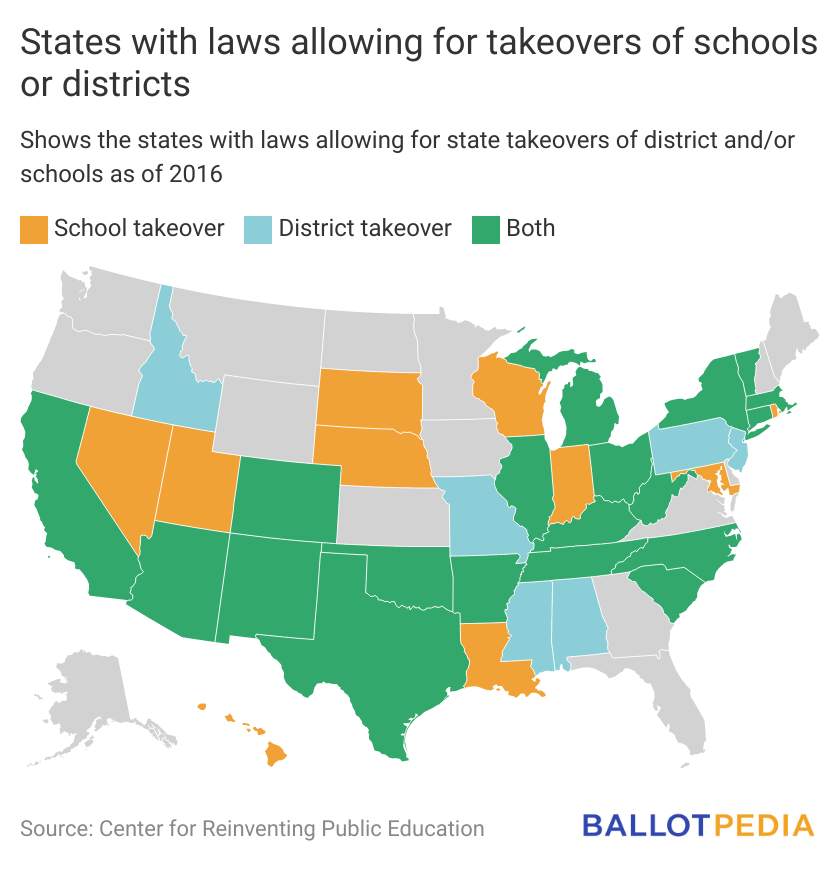A yearslong struggle between the Texas Education Agency (TEA) and the Houston Independent School District (HISD) came to an end on March 15, 2023. Texas Commissioner of Education Mike Morath announced in a letter he was appointing a Board of Managers to replace the Houston Independent School District’s (HISD) elected Board of Trustees. Morath cited a number of reasons for the move, including that “one of the district’s campuses received unacceptable academic accountability ratings for five consecutive years.”
Morath, whom Gov. Greg Abbott (R) appointed to oversee the Texas Education Agency in 2015, first signaled his intent to remove the HISD Board of Trustees on Nov. 6, 2019. Morath notified the district of his decision to replace the elected school board and appoint a superintendent following a TEA investigation into the board’s governance and repeatedly poor academic performance ratings at Wheatley High School. However, HISD lawyers filed a complaint against the TEA, and Travis County District Judge Catherine Mauzy issued an injunction that prohibited Morath from taking control of the district. On Jan. 13, 2023, the Texas Supreme Court ruled state law allows the TEA to take control of the district, ending the injunction.
HISD is the largest district in Texas and the eighth-largest district in the country, with an estimated student population of 200,000. There are 276 schools in the district, including Phillis Wheatley High School, the school Morath identified in his letter as having had several years of poor academic performance. In 2022, Wheatley received its first passing grade in eight years.
State takeovers of schools or districts are relatively uncommon, though many states have laws allowing for such takeovers. In a 2016 report for The Center on Reinventing Public Education (CRPE), political scientist Ashley Jochim writes that “rationales for state involvement in local public school systems have evolved over time but they have almost always been reserved for schools and districts with a consistent record of poor performance — a measure of last resort.”
Jochim’s report found that 35 states had laws permitting the state to take over districts or schools. The first time a state assumed control of a school district was in 1989, when New Jersey took over Jersey City Public Schools following years of poor student performance and increasingly dilapidated buildings. Although the state had relinquished much of its control of the district by 2008, it wasn’t until 2022 when the takeover formally ended.

New Jersey also assumed control of districts in Newark and Paterson in the early 1990s.
Other prominent examples of state takeovers include Pennsylvania’s takeover of the Philadelphia school system in 2001 and the Massachusetts Department of Education’s takeover of Lawrence Public Schools in 2011.
HISD isn’t the first district the TEA has taken over, but it is the largest. In the past 30 years, TEA has taken control of 15 other districts.
Morath said House Bill 1842, which Abbott signed into law in 2015, requires him to take over districts whose schools receive failing grades for five consecutive years. Three Republicans and two Democrats authored HB 1842, including state Rep. Harold Dutton (D), who defended the TEA’s takeover of HISD in a Houston Chronicle op-ed on March 13. Dutton wrote, “When a student fails once, there are consequences. When a district fails at least five consecutive times, there should also be consequences.”
Morath said the new Board of Managers and superintendent would not take over before June 1. The elected Board of Trustees will serve in an advisory capacity, and elections will still take place. The appointed board will serve for two years. At that time, Morath will need to announce a timeline for returning control back to the Board of Trustees or extend the state takeover for an additional two years.
The TEA is accepting applications for the Board of Managers from Houston residents through April 6.
Morath listed three conditions the district would have to meet for the state to return control to an elected board:
- No school receives Ds or Fs for multiple years.
- The district’s special education program complies with state and federal laws.
- The board demonstrates a focus on improving student outcomes.
The takeover has fueled disagreement since Morath announced his intention to remove the elected board in 2019. Gov. Abbott, who backed Morath’s decision from the beginning, said, “There has been a longtime failure by HISD and the victims of the failure are the students.”
U.S. Rep. Sheila Jackson Lee (D), who represents Texas’ 18th Congressional District — which includes parts of Houston — and formerly served on the Houston City Council, called on the U.S. Department of Education to launch a civil rights investigation into the takeover. The ACLU of Texas tweeted: “The state takeover of HISD is not about public education — it’s about political control of a 90 percent Black and brown student body in one of the country’s most diverse cities.” The organization went on to say HISD needed more resources, not dictates from officeholders in other cities.
Reaction among the Board of Trustees has also been polarized. Board President Daniela Hernandez, who was elected in 2020, said, “I believe in the democratically elected board. I ran for this position. I think that community voice is very important for local school districts. HISD is a local school district, and we need to do everything that we can to keep it in local control.” Kendall Baker, who was elected in 2021, said, “I have full confidence that Mike Morath will do everything possible to help parents, teachers, taxpayers, and students. Exterminate the place, find the bodies, and head over back to us.”


